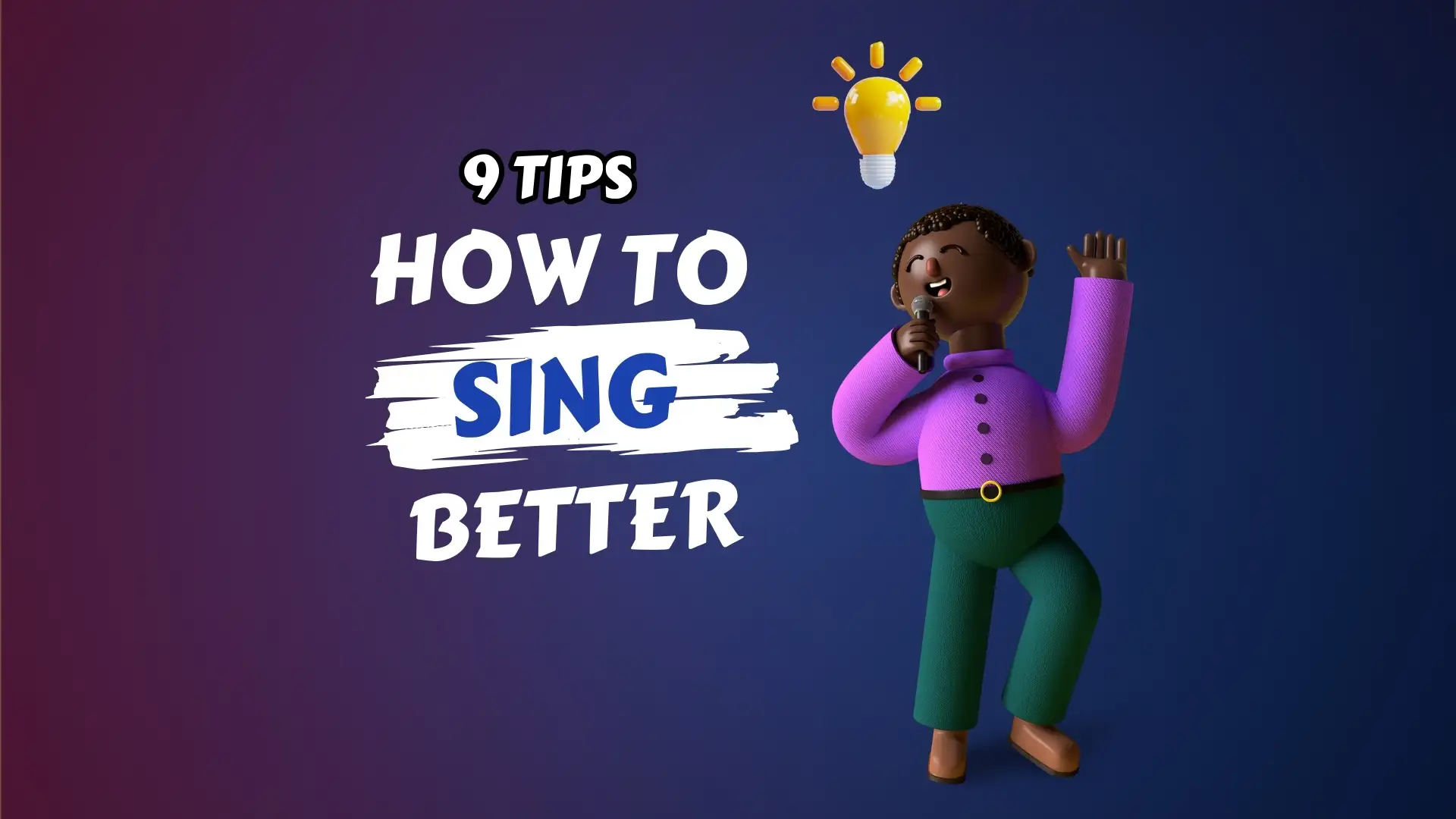- Can Anyone Learn to Sing or is it a Natural Talent?
- How Can i Teach Myself to Sing?
- Can a Terrible Singer Become Good?
- How to Sing Better?
- What is a Vocal Cord?
- How Can Your Vocal Cords Be Harmed?
- What Even is Too Much Singing?
- Singing Tips for Beginners to Sing Better
- 1. Warm-up and Warm-down
- 2. Keep Yourself Hydrated
- 3. Proper Posture for Better Singing
- 4. Let Your Vocal Cords Rest
- 5. Know the Registers
- 6. Proper Breathing to Support Your Singing
- How to Improve Your Singing Voice?
- 7. Listen to Yourself Sing
- 8. Find Yourself a Good Teacher
- 9. Listen to Different Genres of Music
- Final Thoughts!
- FAQs
If everything was perfect, you would never learn and you would never grow,” says Beyoncé. Yes! We always look for better ways to improve. Let us talk about a few ways to improve your singing.
As a vocal coach with years of experience in the field, my happy learners and others always ask me “What are your best singing tips for beginners?”
Well! It is kind of a long list, really. Whether you’ve been singing for twenty years or are just getting started there’s always room for improvement. One can always learn to keep enhancing their voice and improve their singing voice at home with some of my ‘easy vocal exercises for better singing’.
The blog takes you through ‘why it is important to protect your vocal cords’ while looking at some ‘best singing tips for beginners’ and some ‘tips to sing higher notes comfortably’.
Here are some of the proven tips to sing better, that my happy learners and I have been following all these years. Before we get into the details, let’s address some common doubts from beginner singers.
Can Anyone Learn to Sing or is it a Natural Talent?
ANYONE CAN LEARN TO SING! While some may have natural talent, singing is a skill you can train. It’s just like cooking or dancing. The big three- patient, passion and practice is all that you need.
How Can i Teach Myself to Sing?
Want to teach yourself to sing? You should begin with easy warm- ups and try to use a piano or any musical instrument to match pitches. Do not forget to sing EVERYDAY!
How to improve singing voice at home? It’s not very easy but hey, here is my favorite tip for voice training at home: copy your favorite singer, do what they do, replicate it and stay patient. Remember, your voice is muscle, so train like a pro!
Can a Terrible Singer Become Good?
Absolutely! Now, “singing isn’t magic”. It’s all about training your muscles and mindset! With practice, the right exercises and good vibes, even “worse” or “terrible” voices can shine. Even great singers had to start from a bad place. Proper guidance and passion can get you anywhere you want!
How to Sing Better?
Now let’s get into detail, To become better singer you need to know about the key things. Also, there are more pressing questions that you need to find the answers to. Like,
What is a Vocal Cord?

“Healthy vocal cords are like the rain that’s necessary for crops to grow”.
The two muscular bands inside your voice box that produce your voice are called your vocal cords or vocal folds. Vocal cords are in the middle of your voice box are two white strands of tissue. When your voice cords are open, a vocal cord on the left and a vocal cord on the right come together to form an upside-down “V.” They make a slit together when they are closed.
Your vocal cords extend from front to back and from left to right inside your voice box. They attach to the cartilage and muscles that help regulate the movement of your vocal cords inside your voice box.
How Can Your Vocal Cords Be Harmed?
Your voice may be harmed by allergies, smoke, tension, abuse (such as yelling, screaming). Vocal chords that are irritated or inflamed won’t close properly, which can stop you from reaching the higher notes in your range and result in a coarser, more breathy sound on all notes.
You should also keep in mind that vocal cords are very fragile and feeble organs. So much as continuous sneezing can cause friction in them. Protecting your Vocal Cords is the first step to improving singing voice at home. So much usage of your voice like too much singing or screaming or yelling or talking very loudly, even using your vocal cords without proper lubrication(drinking liquids) can harm your vocal cords very easily. Too much practice of Vocal warm-up exercising can be fatal for any singer.
What Even is Too Much Singing?
I get it, it’s confusing to read those words. We were always taught that there is no such thing as too much practice. Shockingly there is. To stop when you realize you have sung too much is simply one of the best singing tips for beginners.
“Too much of Anything is Good for Nothing”. Indeed!
You must learn to know your limit. You can sing or practice to that extent only. Everyone’s capacity and resistance level differs. So it is always best to know when to stop.
With that being said, let me walk you through a few tips to improve singing at home that I followed, that improved my singing.
Singing Tips for Beginners to Sing Better
1. Warm-up and Warm-down
How do i Make my Voice Sound Better with Warm-ups and Warm-downs?
Warm-ups and Warm-downs exercises are of paramount importance in tuning your voice.
Why is warming up so important?
Warming up your voice with simple vocal exercises generally stretches the vocal cords and clears your throat. Furthermore, you can sing higher notes comfortably by warming up and down with some of the easy exercises for better singing. It also enables supported breathing. It’s crucial to stretch your body since it lets your muscles get relaxed before singing. Here the million dollar question, how to train my voice to sing well?
Your vocal chords will grow and your tuning will get better if you sing in upward and downward scales. Warm up exercises let you sing higher notes comfortably and make your singing 10x beautiful and that’s how you train your voice to sing well!
But What is warming down?
Your voice might become coarse if you stopped using it abruptly after a long session of practice. To gradually restore your voice to its usual tone, you must carefully cool down your vocal muscles. I’d say that this is an excellent singing tip for a beginner! Not many of us know about this and risk getting our vocal cords hurt.
You can try to count from 1 to 20 while maintaining a variable tone, loudness, cadence, and pausing in your voice . Reduce the loudness of your voice gradually to calm those muscles.
How to Improve Singing Voice With Vocal Warm-Up Exercises?
Now you understand what are vocal warmp exercises, and why it’s important. Here i have mentioned few vocal warm-up exercises for any singers, at any levels to follow. Try these easy vocal exercises for better singing but most importantly, do not forget to cool your voice down by warming down.
2. Keep Yourself Hydrated

Singing tips for beginners 101! Good vocal health begins from keeping yourself hydrated. Drinking 1-2 liters of water or any liquid is just not good for your body but it is extremely beneficial to keep your vocal cords happy. I’m sure, this one question would have come across our minds at least once- how to sing beautifully with no training? Well! my dear readers, there is not! But lubrication of your vocal cords can be like a small droplet of water in a pond.
What to Drink to Have a Good voice?
Like oil lubricates a car engine, water thins mucus and lubricates vocal chords. Vocal cord strain and friction are caused by thick mucus. The quality of your voice is much improved with reduced trauma and less friction with more water.
Being a singer that I am, I particularly follow a regime of essential homemade water extract to keep my vocal cords calm and healthy. It not only helps my vocal cords stay strong but also keeps cold at bay. I have shared these tips in my other blog- what to drink to have a good voice? Along with a few tips to improve singing voice at home and basic tips for beginners.
What Not to Drink?
It is believed that any drink with caffeine would not do any good. More portions of alcohol and smoking of any kind is bad for your vocal health.
3. Proper Posture for Better Singing
The common misconception among beginners is to tire out vocal cords is the first step towards excellent singing. However, the key to singing well is knowing how to use your entire body to get a proper posture.
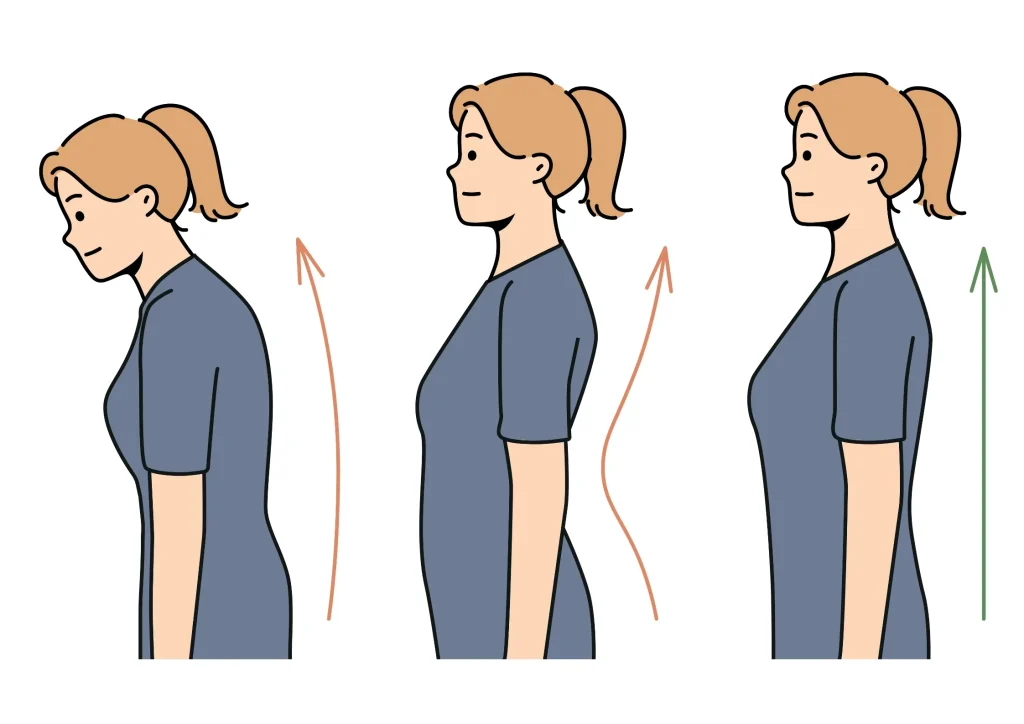
What is the Proper Posture for Singing?
The position that allows your spine to be aligned (not twisted) and non-bent joints(knees) called a proper posture. Adopting this posture when singing not only improves your breathing, but it also maximizes it, which makes your voice sound better.
- Your chin should be parallel to the floor and gently tucked in or back, starting from the top.
- Maintain a relaxed posture with your shoulders tucked in or slightly back and your chest held high.
- Learning to breathe with your diaphragm will need you to practice controlling the muscles of your stomach.
- Keep your hands at your sides in a calm, steady position. To let air circulate around you, keep them a little distance from your body.
- Place your feet shoulder-length apart as you stand. For balance, you can place one foot slightly in front of the other.
- Never lock your knees; they should always be in a loose position, even if you’re starting to get nervous.
- You should stand with your feet shoulder-length apart and lean your body slightly forward. You may place one foot forward to support your body weight and to keep your spine supported.
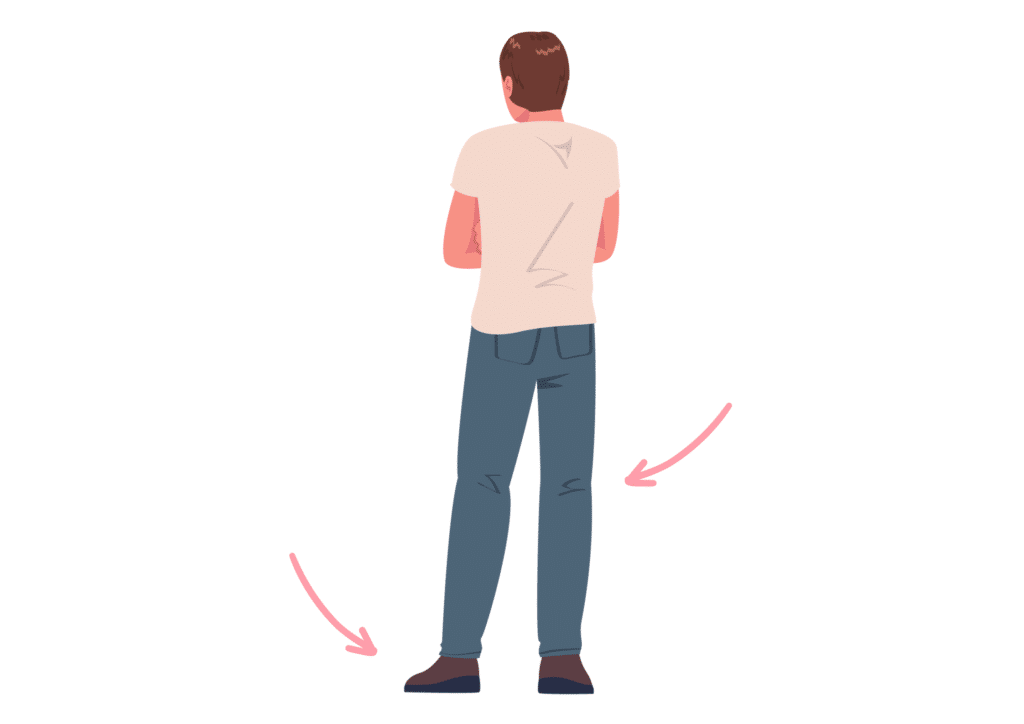
4. Let Your Vocal Cords Rest
Think of this- when your legs ache from walking or running for a long time, you’d try to sit or lie down and rest your legs. This allows you to use your muscles again full-fledged.

Did You Know?
Whispering can cause damage to your vocal cords!
Just like that your vocal cords need rest from time to time.
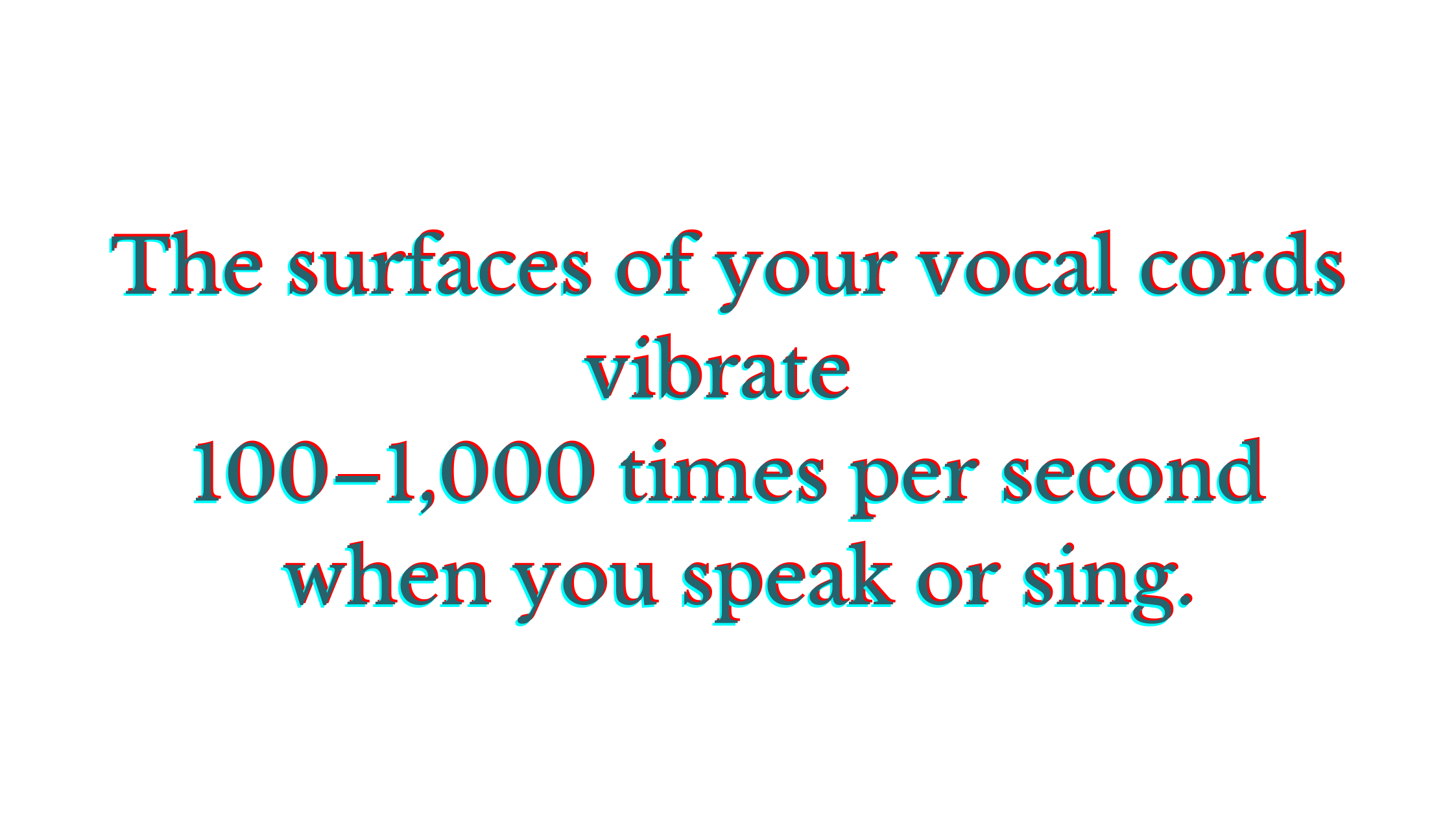
This includes not talking, singing, screaming or whispering – all of which are extremely bad for your vocal cords. The more time you give your voice to rest, the better, as it requires time to come back to form.
Resting your voice allows your sensitive vocal folds to repair and stay healthy.
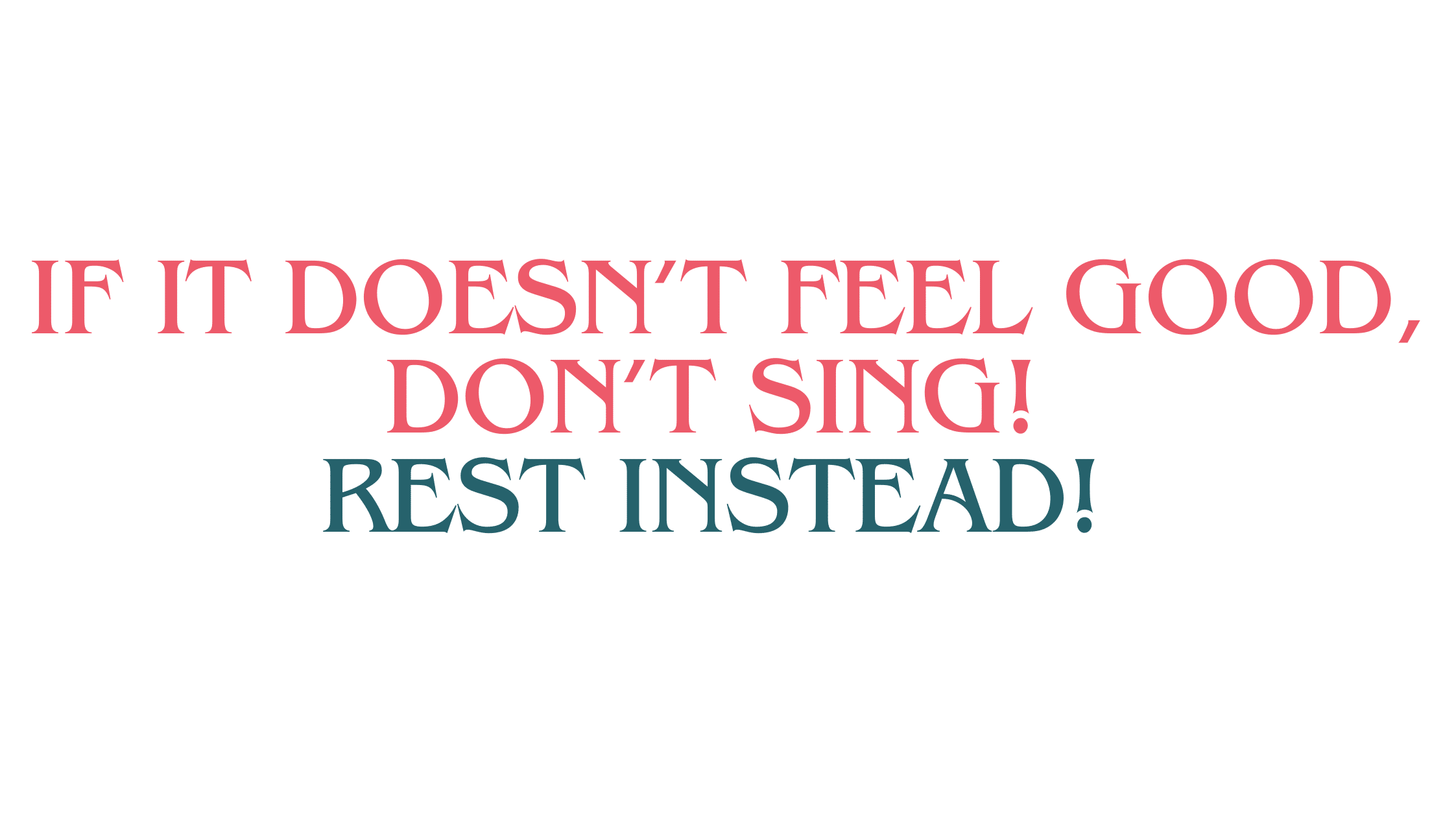
5. Know the Registers
It is possible for your voice to crack while shifting between vocal registers without proper technique. This break is often called ‘Passaggio’ and you need to transition smoothly. Now, you understand the explanation to “Why does my voice crack when I sing?”
In voice training, vocal registers are one of the most discussed and yet misunderstood concepts. It is quite essential to know the vocal registers to hit high notes or low notes without much difficulty. Here is a great tip to sing higher notes comfortably- know the voice registers!
What are Voice Registers?
A vocal register is a range of tones in the voice that are created by the vocal folds vibrating in a specific way. Basically, one needs to understand head voice and chest voice.
Why Should you Understand Head Voice vs Chest voice?
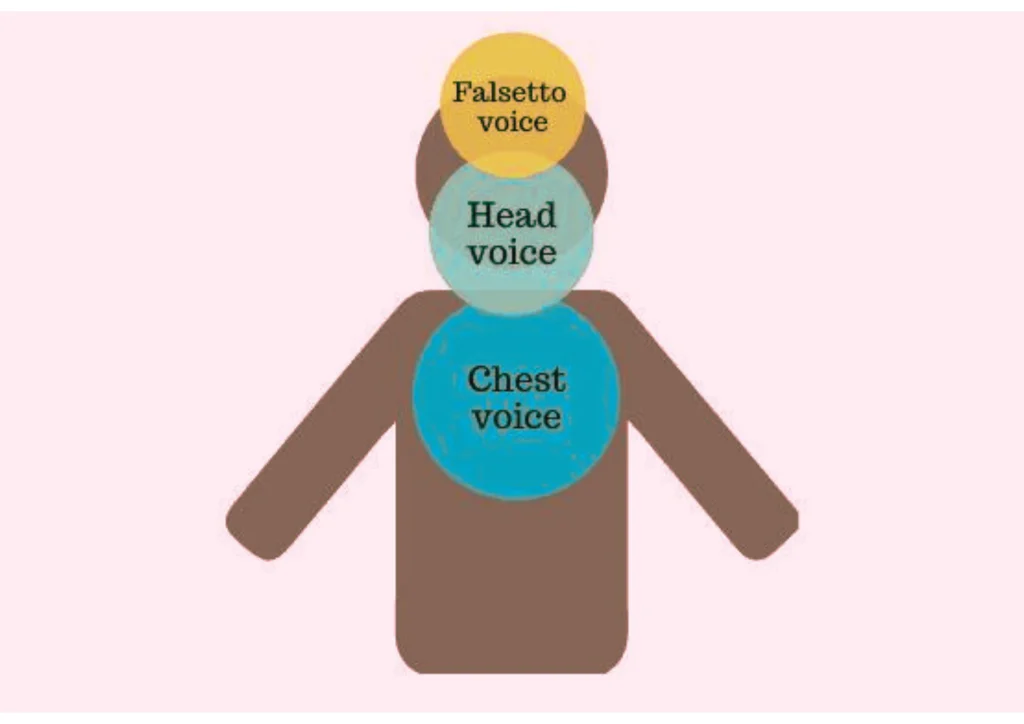
A singer’s higher register is generally referred to as their “head voice.” In order to match that upper range and reach higher notes, the voice cords automatically shorten.
Heading on to head voice vs falsetto! To sing higher notes, singers might use their head voice and falsetto. Both male and female vocalists can sing a falsetto that extends into the upper range of the voice. It sounds softer and lighter. This is how you sing higher notes comfortably. Take this tip to sing better!
Your vocal range’s middle and lower notes make up your chest voice, which is the range you use when speaking. Unlike the head voice or falsetto, the chest voice produces a broader, more fuller sound as your vocal folds vibrate throughout its length.
6. Proper Breathing to Support Your Singing
Have you ever tried dancing or bouncing about while singing along to a song? How do concert goers hear skilled singers perform when they’re not performing at their best? How to become a great singer? The answer to all of them is ‘Proper Breathing! I must admit that by far this must be one of the best singing tips for beginners

Learning to regulate your breathing will help you avoid running out of air in the middle of a note.
Starting with diaphragmatic breathing is a highly recommended approach.
What is Diaphragmatic Breathing?
To feel your stomach expanding, place your hands on your abdomen. This indicates that you are breathing from the diaphragm rather than your chest.
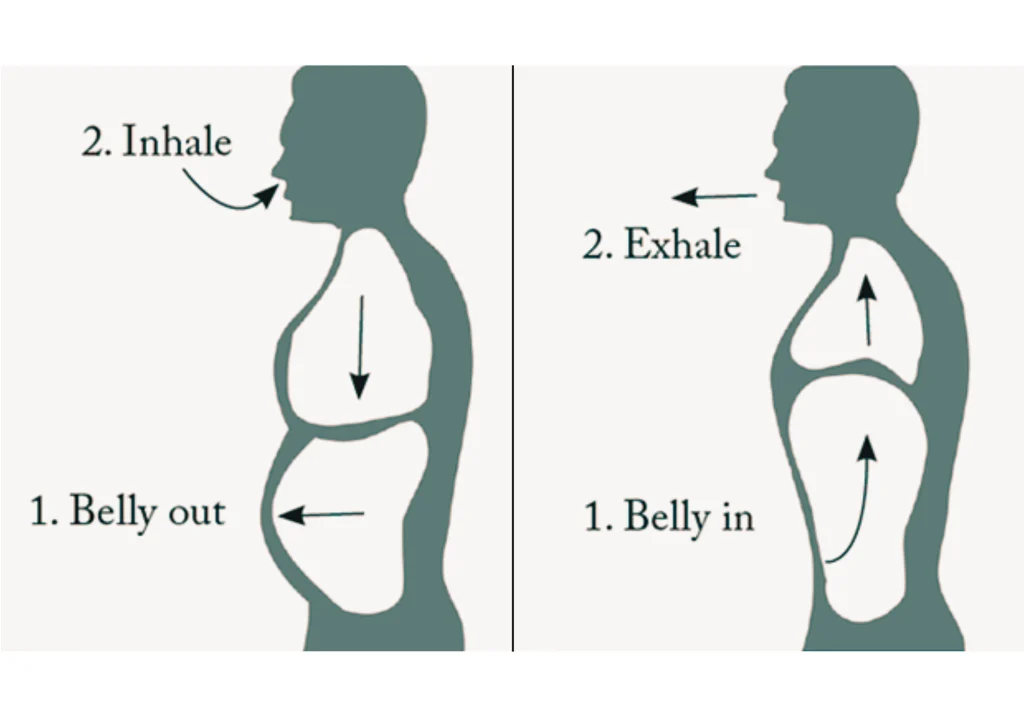
Lie down on your back and try this exercise: Breathe in through your nose for four seconds, hold it for eight, then exhale for eight more seconds. Make every effort to fill your lungs with as much air as you can by utilising your diaphragm. This diaphragmatic breathing exercise can simply improve your singing voice at home.
How to Improve Your Singing Voice?
7. Listen to Yourself Sing
Yeah! Since sound travels in a straight wave, when it leaves our lips and reaches someone else’s ears, they are hearing our actual voice; when you hear yourself, however, the sound must travel around your head and into your ears, which results in frequency changes.

This only makes it sound different from what we’re used to, not worse. You may learn to hear your actual voice and make any adjustments by singing into a microphone and recording yourself. This will make your singing 10x better.
I always ask my happy learners to stand in front of the mirror when they practice. There are tons of reasons why one must watch themself when they sing. To point a few, doing so improves your confidence in yourself.
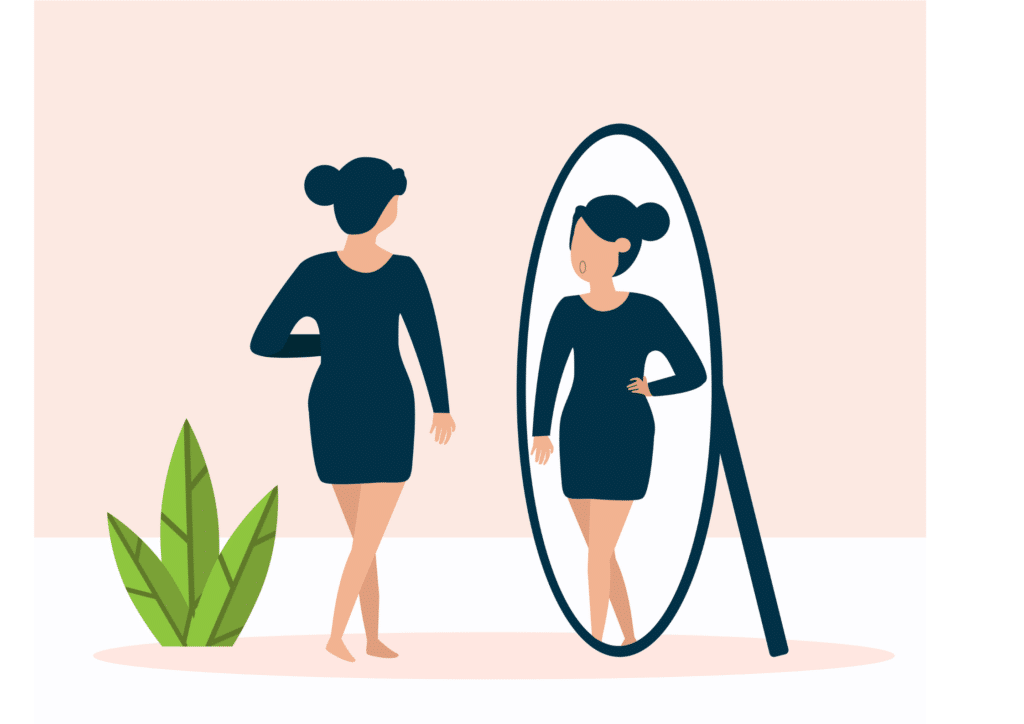
You can also check if you are opening your mouth wide enough or if your shoulders move or even if you are breathing right. Yet another great singing tip for a beginner.
8. Find Yourself a Good Teacher
Now just another amazing way to answer ”How can you Become a Good Singer?” get yourself a good teacher. Although self-training is now possible- thanks to the internet, having a qualified teacher is still very important. Now this begs the question how to sing beautifully with no training from a professional educator. Self training is possible, yet there is always the risk of learning wrong and making that a habit. I would most definitely recommend a teacher to check and correct.
Why Should I Get a Teacher to Learn Singing?
Your instructor will teach you the right methods, support you when you are not performing well, and give you advice when you are doing too much.
You will become much more interested in the art of singing if you realise that someone is tracking your development, encouraging you when you feel hesitant, and believing in you even when you are far from your destination.
9. Listen to Different Genres of Music
One of the finest methods to keep yourself inspired as you progress in your singing is to listen to the performances and music of gifted singers. Learning to sing like your favorite musicians will always happen more quickly when you listen to them and mimic their style.
You often pick up skills more quickly and develop your own distinctive singing style in the process.
To learn how to work with a musical arrangement or an orchestra when you perform with one, you must also listen to the accompanying instruments. When you get exposed to different types of music genres, you get a lot of ideas and at best idea to find your own sound and style.
Final Thoughts!
You have what it takes to become an amazing vocalist! Don’t burden yourself with questions like ‘will I ever become a good singer, but keep asking How to become a good singer or ‘How to improve singing?
Try to read these singing tips for beginners and really singers of any level. It is going to take you places. If you are looking for professional music teachers to learn with our free one to one demo online live music classes with Musicmaster.
Are there any additional singing-related advice you might share? Tell us in the comments section below.
FAQs
How can I improve my singing voice overall?
You can improve your singing by practicing and painting good vocal health.
What are the most important vocal techniques to learn?
Supported breathing, vibratos and trills.
Can anyone learn to sing well, even if they're not naturally talented?
Yes, they 100% can learn to sing.
How can I improve my vocal range and control?
You can improve your vocal range and control by singing vocal exercises everyday.
How can I overcome stage fright and perform with confidence?
Important ones to remember are head voice and chest voice.
How can I improve my singing voice overall?
By watching yourself sing in front of the mirror or in pre recorded videos.
How can I improve my diction and pronunciation while singing?
By listening other artists and trying to mimic the diction and articulation.
Related blog: Easy songs to sing

